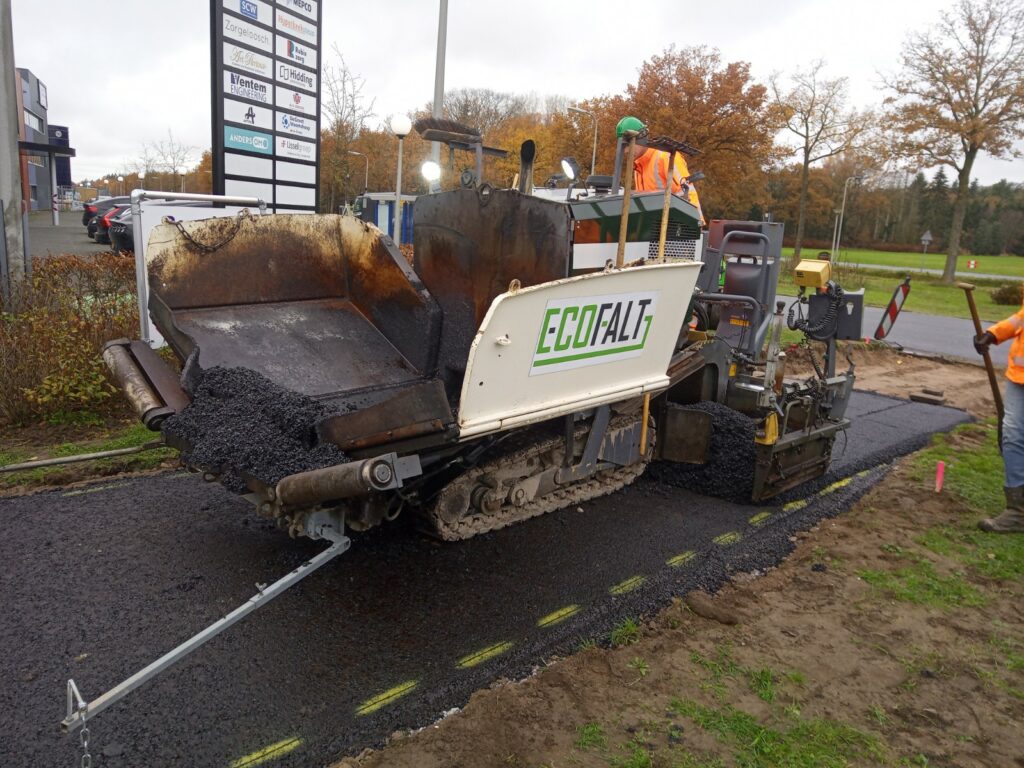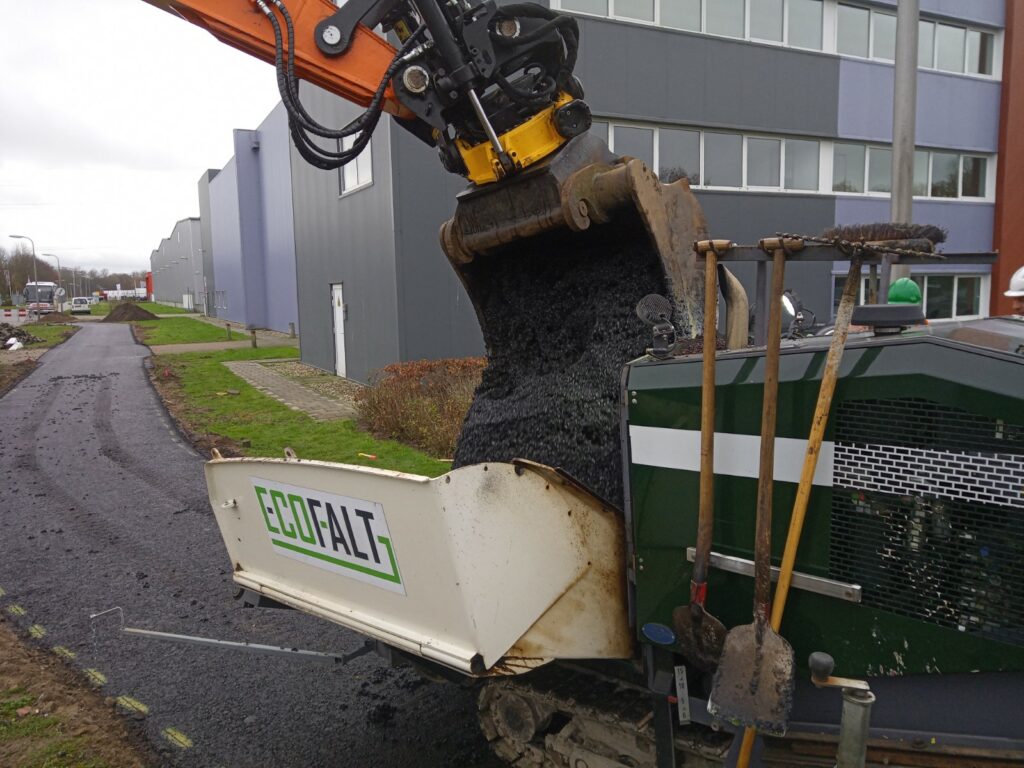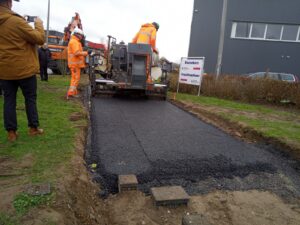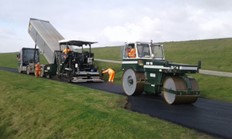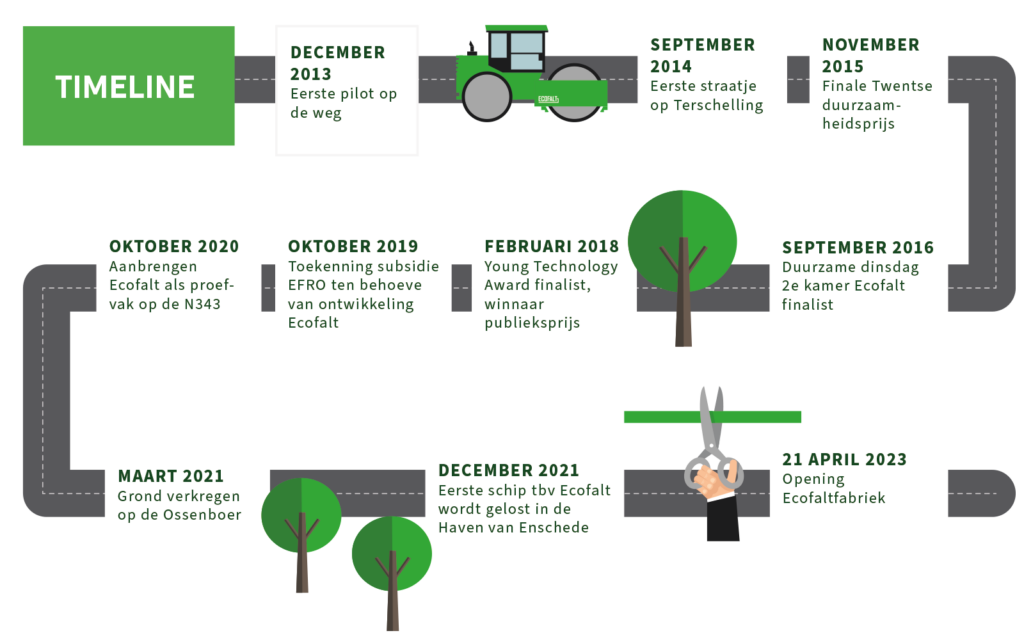Ecofalt

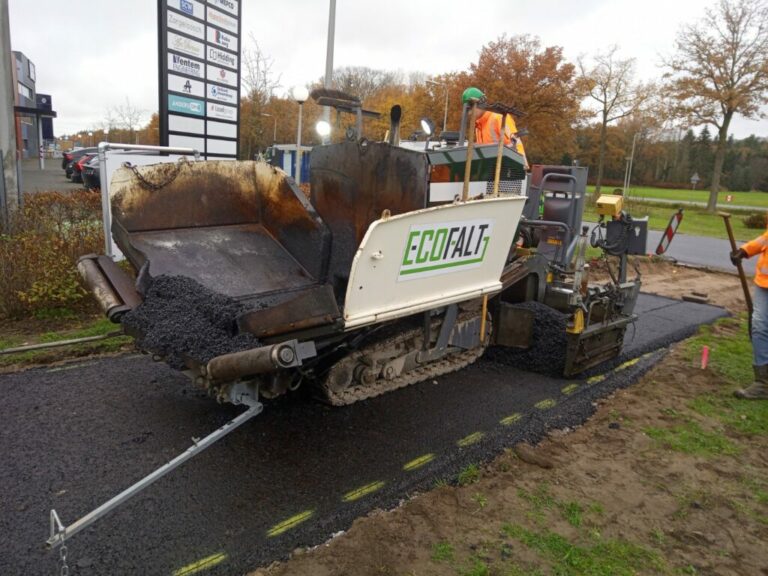
When you look at where there are a lot of CO2 losses within the municipal government, it is when making asphalt. How can we reduce this amount substantially?
With Ecofalt there is a sustainable alternative for traditional hot asphalt but it is produced completely cold. This results in a 100% reduction in gas consumption and CO2 emissions during production. Instead of petroleum-based bitumen, a special (biological) Ecofalt bitumen is used. A bitumen based on organic oils made from sunflower seeds, flaxes and linseed. If you combine Ecofalt and Biochar then you get a unique product, Charcofalt. This would be an asphalt mixture that in theory could even be CO2 positive! So, the more asphalt you apply, the more CO2 you store. In this project we will try to show that we can make Charcofalt with a positive CO2 footprint. The intention is to apply Charcofalt as a pavement, here on the site of the Ecofalt factory.
- More Info
- Gallery
- Video
- Contact
Ecofalt is the most sustainable alternative to regular warm asphalt and also has the external characteristics of this. What makes Ecofalt unique is that it is produced at ambient temperature, so without heating. This results in a 100% reduction in gas consumption and CO2 emissions during production. The bottom and intermediate layers of Ecofalt consist of 100% old road surface.
As a result of our sustainable thinking, Ecofalt has solutions and functionalities that regular hot asphalt does not have.
Ecofalt + Biochar
Sustainability starts at Ecofalt. By using Ecofalt instead of regular warm asphalt, this results in a 100% reduction in CO2 emissions during production.
If we add Biochar to Ecofalt, we can even store CO2. This creates a CO2 negative product.
First road with CO2 negative emissions
The access road to the Military site in Boekelo was the first in September 2022!
With Ecofalt, we saved 170 m3 of natural gas on that road, resulting in a reduction of 357 kg of CO2 emissions. In addition, we added Biochar, creating a product that is carbon negative. Thanks to the addition of Biochar, we have not only reduced CO2 emissions, but also captured another 600 kg of CO2. These are the first steps in road construction to store CO2 instead of how much CO2 it currently costs to produce. So, the more Ecofalt with Biochar we use, the more CO2 we can store!
The world’s most climate-friendly cycle path
In December 2022, the first climate-friendly cycle path was built in Enschede. The traditional asphalt has been replaced by Ecofalt + Biochar. The work was carried out at an outside temperature of 5 degrees. Here too, Ecofalt shows that you can carry out work at ambient temperature without heating. This is possible because Ecofalt is produced with a biobased emulsion. This emulsion contains, among other things, organic oils such as sunflower, flax and linseed oil. The addition of Biochar has created a climate-friendly cycle path that also stores CO2.
What is Biochar?
Biochar is made from organic material and can be compared to charcoal. You make it from, for example, agricultural waste and wood chips. It is produced by heating the material in a controlled manner without oxygen. This technique is called pyrolysis.
Biochar is similar to charcoal, but has specific properties due to the method of production that make it useful in a variety of applications. When Biochar is added to the soil, it improves soil fertility and can retain water and nutrients better.
Adding Biochar therefore ensures the capture of CO2 and increases the carbon storage in the soil. This contributes to reducing the concentration of greenhouse gases in the atmosphere and combating climate change.

